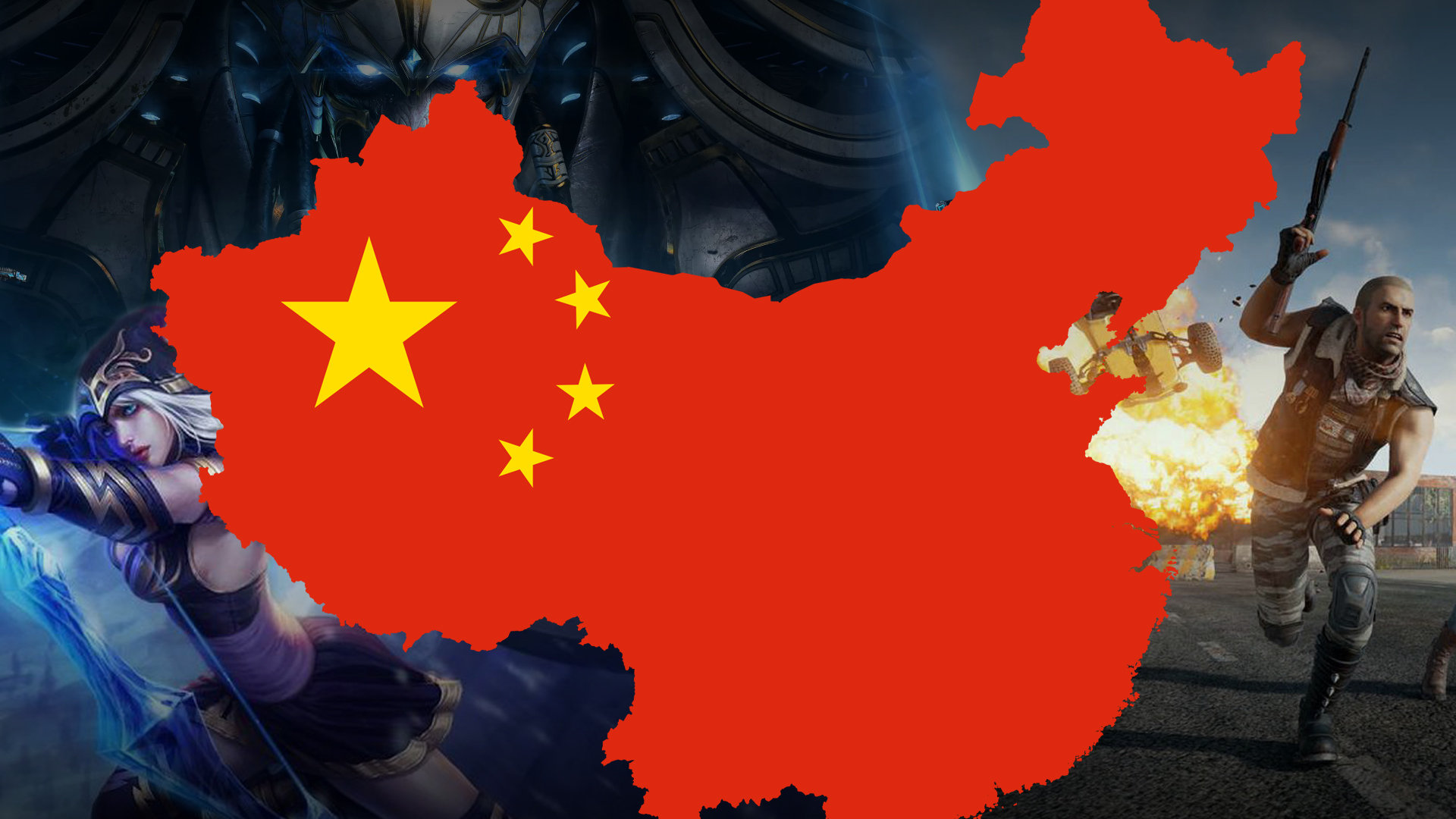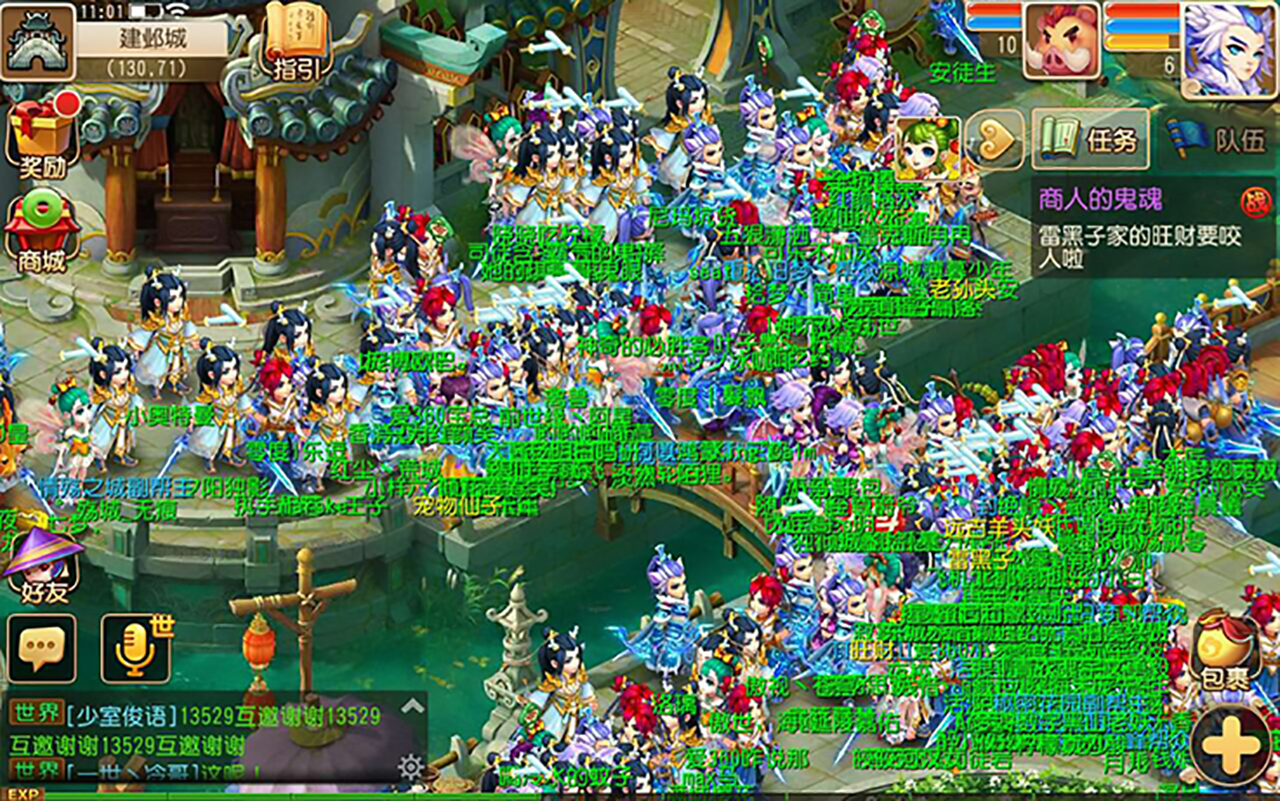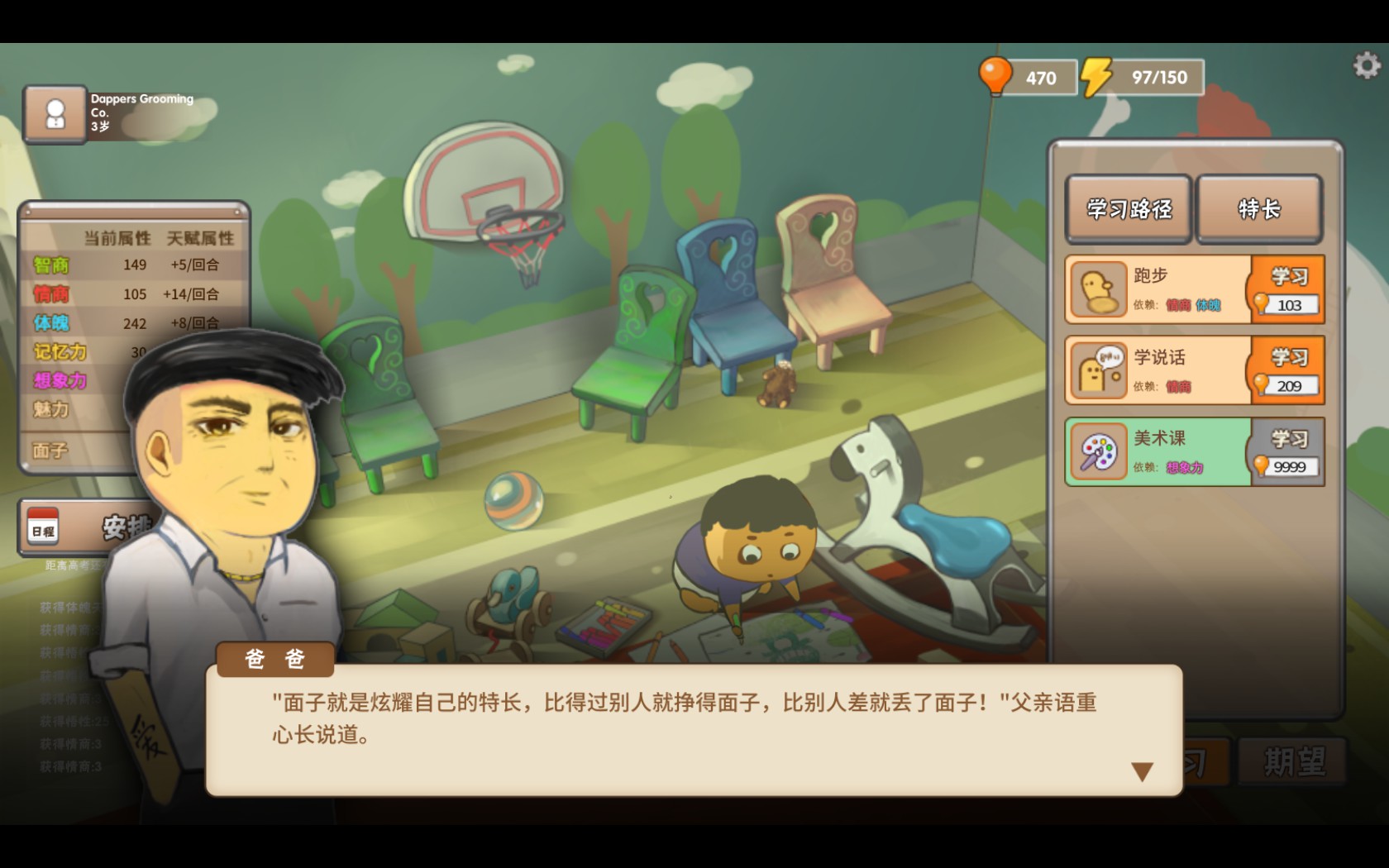PC gaming in China: Everything you need to know about the world's biggest PC games industry
Your guide to what's happening in the world's largest PC gaming scene.

China's PC games industry is the largest in the world. But until recently, with the rise of giant corporations like Tencent, and with Steam becoming an unexpectedly popular platform for Chinese gamers, PC gaming in China was treated like an enigma to westerners. We want to help change that.
As China's influence on PC gaming continues to grow with each passing year, understanding the complexities of its own industry is becoming increasingly valuable (and just plain interesting). That's why, after several months of research and interviews, we've put together this handy guide to PC gaming in China. If you want the full scoop on the problems facing China's PC games market you should read our detailed report, but if you're just wanting a quick overview you can reference in our future reporting on the subject, this is the place.
So, just how big is China's PC gaming industry?
It's big. In 2018, there were an estimated 312.4 million people playing PC games in China, generating $15.21 billion in revenue according to Asian games market research firm Niko Partners. By 2023, Niko Partners predicts there will be 354 million PC gamers—more than the population of the United States—generating $16 billion worth of revenue. Just to put that in context, there are roughly 90 countries with a smaller GDP.
China's PC gaming industry is the largest in the world by a wide margin. The entire US games industry, including PC, mobile, and console games, generated only $30.4 billion in revenue in 2018—China's PC gaming scene alone is equal to about half of that.
A big part of that is esports—which shouldn't surprise you if you're at all familiar with how big competitive games like League of Legends and Starcraft 2 are in China. Esports amounts to about $6.3 billion (or around 41.4 percent) of PC revenue.
What are some of the biggest PC games from China?
In spite of those numbers, you might be hard-pressed to name a Chinese-made PC game. That's partly because around 60 percent of that $15.21 billion comes from foreign games like PlayerUnknown's Battlegrounds (which is huge in China) and Korean-made MMOs like Dungeon Fighter Online. Even though it has so many PC gamers, China's development scene is largely focused on free-to-play online games (MMOs are a huge deal in China) that are rarely localized to English or have much of a presence outside of Asia.
I'll get to why that is in a second, but here's some of the bigger PC games made in China:
The biggest gaming news, reviews and hardware deals
Keep up to date with the most important stories and the best deals, as picked by the PC Gamer team.
- Fantasy Westward Journey and Westward Journey 2 are two enormously popular Chinese MMOs both heavily inspired by the Chinese literary classic Journey to the West. Interestingly, both games share the same engine and many features but have two distinct visual styles that appeal to different audiences.
- Ring of Elysium is a Tencent-developed battle royale that is currently is one of the top 50 most-played games on Steam. There's not much to say about this one because, well, it's just another battle royale.
- Perfect World is an enormously successful Chinese MMO that helped developer Perfect World (yes, they share the same name) become a global publisher of MMOs like Star Trek Online, Neverwinter, and many others.
This also doesn't account for all the massively popular games in China that were developed by neighboring South Korean companies or companies based elsewhere but owned by Chinese corporations. Games like Crossfire, Dungeon Fighter Online, and League of Legends are all wildly successful games in China and some of the top-grossing games of all time.

So why are free-to-play online PC games so popular in China?
The success of free-to-play games in China is a perfect example of companies learning to adapt to unique socio-economic challenges. Back in 2000, China's State Council banned the sale of consoles and console videogames for fear of what they might be doing to China's youngsters. For whatever reason, PC games were omitted from that ban, so gamers had no choice but to play games on PCs.
But there was a problem: Owning a PC and buying (or importing) full-priced videogames was prohibitively expensive for the average Chinese gamer back then. Keep in mind that China has only just become an economic powerhouse over the past 20 years. Though it's not a perfect measurement of standard of living, especially given both countries' enormous wealth gaps, China's GDP per capita at the time was just under $3,000 while The United States' GDP per capita was $36,000.
"Historically, there was a lot of piracy of any packaged product and a lot of counterfeit goods," says Lisa Cosmas Hanson, founder and managing partner of Niko Partners. To survive, Asian game developers came up with a new system leveraging China's internet infrastructure and the idea of free-to-play games with microtransactions was born. It was a win-win for both sides, since Chinese gamers could play games at a reasonable cost metered out over time and Chinese developers could still profit and avoid piracy.
Are PC games in China censored? Why?
Yes. Every game that is officially sold in China must first seek approval from the appropriate government organization. Censorship of videogames in China largely takes two major forms. First, games are investigated to ensure that they comply with a long and sometimes vague list of rules about what types of games are permissible. Second, free-to-play and online games are checked to see that they comply with anti-addiction and gambling laws—which includes rules that prohibit children from playing games for longer than a couple of hours a day.
These rules and their definitions are often changing, and China doesn't currently have a universal ratings board like the ESRB or PEGI. Every game must be appropriate for all audiences.
The result is a list of rules that are sometimes easy to understand, like prohibiting violence or "images of dead bodies or pools of blood," and sometimes terribly vague. "Anything that violates China’s constitution" and "anything that harms public ethics or China’s culture and traditions" are both prohibited in Chinese videogames, for example.
Why these rules are enforced is a complicated matter. Much of it has to do with the Chinese government's old-fashioned views on videogames and the still-popular belief that exposure to games can instill violent tendencies or other characteristics that impede one's ability to be a good, upstanding citizen. The Chinese government has also blamed videogames for myopia and other health-related concerns.
Aside from videogames, China's communist government excels at controlling the flow of information in and out of the country. There's an enormous firewall that stops Chinese citizens from accessing all sorts of websites the government deems bad, including Facebook, Twitch, and many others, which some bypass with VPNs. Controlling the content of videogames and making sure they adhere to the government's values (however arbitrary they might seem) is a natural extension of that.
So wait, how does Steam work in China then?
That's a good question that no one has a real answer to (except the Chinese government and Valve, that is). For years, Steam has represented an enormous hole in China's firewall, letting gamers access games not officially regulated by the government. For many Chinese players, Steam is an invaluable portal to a world of games that would never be allowed for sale in China like Grand Theft Auto 5 and Ark: Survival Evolved.
What's bizarre is that some Steam features like the community and pornographic games are disabled by the firewall. But practically everything else is allowed and no one has a great explanation as to why that is.
It could be that the Chinese government has agreed to let Steam exist for the time being because Valve has partnered with Chinese company Perfect World to create a version of Steam specifically for China. Simply called Steam China, this version would comply with government censorship and regulation, which would likely remove the vast majority of games available on its marketplace. Naturally, Chinese gamers don't want that to happen. They're worried that when the sanitized version of Steam China releases, the international version of Steam with all its unregulated games will be blocked by China's firewall.
What was the deal with that big approvals freeze everyone is talking about?
Last year, the Chinese government initiated a sweeping reform of its regulatory bodies to better adapt to how quickly its videogame industry has grown. A long war between the two chief regulators at the time, the State Administration of Press and Publications for Radio, Film, and Television (SAPPRFT) and the Ministry of Culture (MOC), was causing all kinds of tension and confusion. The government stepped in and created a new regulatory body, The State Administration of Press and Publication (SAPP), with sole ownership over the approvals process.
This enormous reform and the creation of a new regulatory body took almost a year and during that time the government put a freeze on approving any new games for sale. For the first time since 2001, China's games industry shrank in size and Tencent complained it had lost $190 billion in market value by being unable to sell new games.
Fortunately, the SAPP starting approving games earlier this year as the gears on this new bureaucratic machine started turning. Over 1,000 new games have been approved by the SAPP since December, 2018, and China's PC games industry is projected to bounce back and keep on growing.

What about China's indie game scene?
China's independent games scene is small and struggling, but that could soon change. The approvals freeze of 2018 was potentially disastrous to indie developers relying on shipping a new game in order to pay the bills, and the approvals process in general is costly and time-consuming.
Because so much of China's games industry is wrapped up in esports and free-to-play online games, indie games are having a hard time getting noticed and taken seriously. But that's beginning to change in a big way. Organizations like the China Indie Game Alliance (CiGA) are spreading the word by hosting the indie-focused WePlay Expo along with other initiatives to support indie game developers in China. Meanwhile, Steam's popularity among Chinese gamers is also exposing them to a variety of games that they'd never get a chance to play otherwise.
In the same way that indie games exploded around 2008, China's indie scene could be on the verge of its own renaissance. In the last two years, indie games like Chinese Parents and Scroll of Taiwu topped Steam's best sellers list while co-op action games like Lost Castle challenged the conventions of what types of games can be successful in China. In the same way that indie games revolutionized how we play, buy, and think about games, China's own industry could be close to having that same revelation. But with Steam soon falling under the umbrella of Chinese censorship, the future of indie games in China is still very much uncertain.
With over 7 years of experience with in-depth feature reporting, Steven's mission is to chronicle the fascinating ways that games intersect our lives. Whether it's colossal in-game wars in an MMO, or long-haul truckers who turn to games to protect them from the loneliness of the open road, Steven tries to unearth PC gaming's greatest untold stories. His love of PC gaming started extremely early. Without money to spend, he spent an entire day watching the progress bar on a 25mb download of the Heroes of Might and Magic 2 demo that he then played for at least a hundred hours. It was a good demo.


